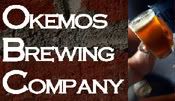 19° - overcast at 8am
19° - overcast at 8amIn the past I've mentioned programmers who have sought out ideas and thoughts from the audience and have actually put these ideas on the air. Most notable is John Hager, Program Director for Citadel's WGRF/Buffalo (97 Rock).
 Back in December, Fred Jacobs (here) used an example where John sought out feedback on Christmas music - and then took it to the next level:
Back in December, Fred Jacobs (here) used an example where John sought out feedback on Christmas music - and then took it to the next level:"...the key to getting the most out of this process is that he shows the results of the survey on the station's website, allowing the audience the opportunity to see the findings and buy into 97Rock's course of action with Christmas music. It's a great way to learn more about the audience, answer important programming questions, and make the audience feel very important in the process."
 I'm reminded of this by the new effort of Starbucks where customers are asked to contribute and vote on ideas for the coffee giant. Mark Ramsey covers this here - and pointing out:
I'm reminded of this by the new effort of Starbucks where customers are asked to contribute and vote on ideas for the coffee giant. Mark Ramsey covers this here - and pointing out:"It's not simply the lazy old radio trick of "we're building your station - tell us what you want." It's evidence of what people are asking for, what is most popular, and what Starbucks is actually doing about it. And meanwhile, it builds Starbucks' community and engages its consumers for their own benefit and that of the brand."
As ChaosScenario points out: So far - according to the website ChaosScenario - the top ideas include free wi-fi, a point card where customers can get free drinks - and free drinks for birthdays, new coffee introductions, etc.
Here in my area, Starbucks biggest competitor, Bigby's (formerly known as Beaners) offers both free wi-fi and a point card - and those are two reasons why Bigby's is my first choice for coffee. Starbuck's only advantage - at least in my neighborhood - is a drive-up window.
Here in my area, Starbucks biggest competitor, Bigby's (formerly known as Beaners) offers both free wi-fi and a point card - and those are two reasons why Bigby's is my first choice for coffee. Starbuck's only advantage - at least in my neighborhood - is a drive-up window.
"...all of these ideas involve an investment by Starbucks, essentially giving something away. The activity on the site is reflective of their loyal customer base. If they don't implement some of these ideas and communicate them back to their customers, the whole initiative may backfire."
Which gets back to radio. Are you soliciting and implementing listener ideas in a credible way? Or is your request for input just empty lip service? Another radio trick, perhaps? And are you prepared to act on those ideas?
Added: More on the Starbucks "web 2.0" initiative from Advertising Age here.
More here tonight. The day job awaits.




No comments:
Post a Comment